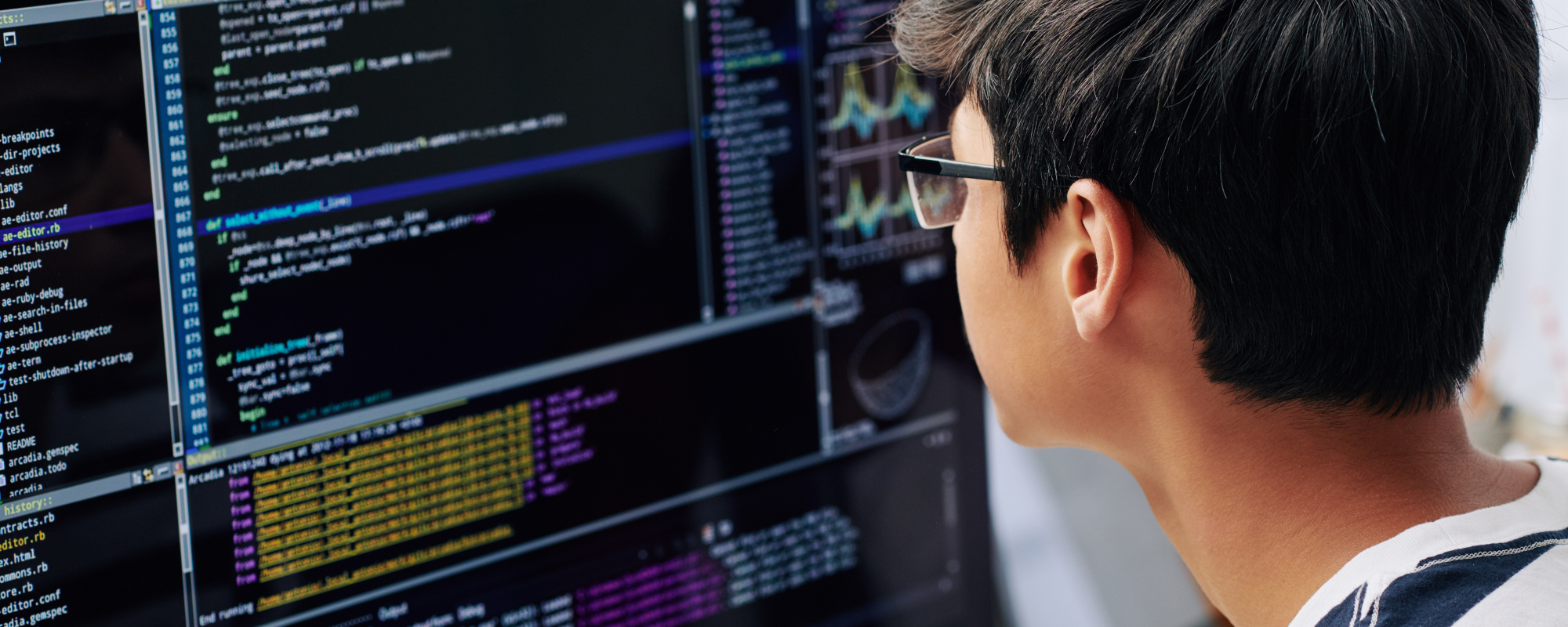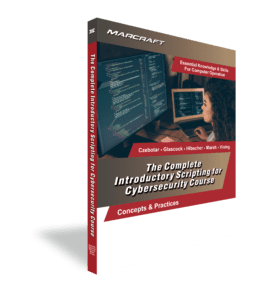MC-2600
Coding is a key component of cybersecurity. It is important that cybersecurity personnel in various job roles understand programming tools so that they can decipher the overall strategies, tactics and goals of attackers. In addition, they often use scripting languages to create programs that will carry out specific or repetitive cyber operations. Four of the most widely used scripting languages include – Python, Powershell, Bash and Ruby.
Some of the most common cybersecurity-related job roles and their relationships with coding include: Penetration testers, Incident responders, and Cyber System Analysts.
This course introduces the student to these scripting languages and leads them to develop applications to perform cybersecurity-related activities.

THE COMPLETE INTRODUCTORY SCRIPTING FOR CYBERSECURITY COURSE
MC-2600
Coding is a key component of cybersecurity. It is important that cybersecurity personnel in various job roles understand programming tools so that they can decipher the overall strategies, tactics and goals of attackers. In addition, they often use scripting languages to create programs that will carry out specific or repetitive cyber operations. Four of the most widely used scripting languages include – Python, Powershell, Bash and Ruby.
Some of the most common cybersecurity-related job roles and their relationships with coding include: Penetration testers, Incident responders, and Cyber System Analysts.
This course introduces the student to these scripting languages and leads them to develop applications to perform cybersecurity-related activities.

Not Just a Simulation! Hands-on Labs Use the Following Scripting Languages:
Python
Ruby
PowerShell
Bash
Students will use the provided Single Board Computer (SBC) as an endpoint to test and use networking scripts. The board will be directly networked to the student laptop, so students can write scripts that craft and send packets to the board while monitoring the network traffic to confirm that the scripts work as intended.
The Marcraft Complete Introductory Scripting for Cybersecurity covers these topics:
- Differences Between Structured Programming and Coding (using Scripting Languages)
- Basic Commands of Ruby, Python, Bash, and PowerShell
- Command Line Structures for Each Language
- Applications to Automating Cybersecurity-Related Operations
- AND MUCH MORE!
The Complete Introductory Scripting for Cybersecurity Course Includes:
- MC-2600 The Complete Introductory Scripting for Cybersecurity Package for 24 Students Working in Pairs (Requires PC Workstation Computers)
- Instructor’s Guide with PowerPoint Presentation USB Drive (1 Per Classroom)

This program uses the Complete Introductory Scripting for Cybersecurity Course Text & Lab Guide
Available Accessories for the Complete Introductory Scripting for Cybersecurity Course:
MC-260 The Complete Introductory Scripting for Cybersecurity Course Text and Lab Guide